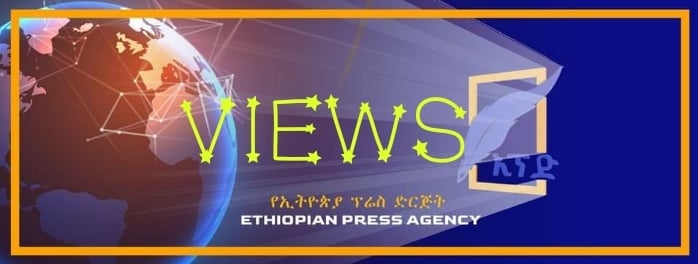
PART ONE
The Nile hydro politics has been and continues to be one of contentious regional issues in Africa. Nile, being the longest river in the world, touches the life of close to 500 million people, living in eleven African countries of the basin. From the total amount of Nile water, White Nile contributes 14 percent while Blue Nile originating from Ethiopian highlands contributes 86 percent.
Though this huge water can be sufficient for the development needs of all the basin countries if fairly utilized, the water was predominantly controlled by only two downstream countries, Egypt and Sudan, claiming colonial period treaties of 1929 and 1959 as a legal pretext. In recent years, the upstream countries have started to reject these unfair bilateral colonial treaties and established Nile Basin Initiative (NBI) on February 1999. After 10 years of Negotiation, NBI member countries succeeded in formulating Comprehensive Framework Agreement (CFA), a legal document produced based on that principle of fair and equitable utilization, which is intended to will serve all the basin countries’ interests. However, only Egypt and Sudan refused to sign the agreement.
Following Ethiopia’s launching of the Grand Ethiopian Renaissance Dam (GERD) project on April 2011, the Nile River agenda drew the attention of international community, global Medias as well as several other players.
Ethiopia’s consistent position
Starting from the inception of GERD project, the then Grand Millennium Dam, Ethiopia has been following a very balanced and fair approach. Back in 2011, during the official launching of the project, Ethiopia transparently announced in the presence of diplomatic corps based in Addis including Egyptian and Sudanese Ambassadors on the construction site of the dam that, it is a hydroelectric power generation project which is aimed at using its naturally endowed resource for the development need of over 100 million people of Ethiopia and that it has no hidden agenda of harming the downstream countries.
Since the initial stage of the dam, in a bid to build confidence and common understanding with the two downstream countries, Ethiopia initiated a trilateral platform which has been discussing the issue for the last ten years. Ethiopia has also availed to the two countries the necessary technical studies and data of the project, as well as promising to exchange necessary information on the dam filling process which goes in parallel with the construction of the dam.
Over the last ten years, consecutive Ethiopian leaders namely late PM Meles Zenawi, former PM Hailemariam Dessalegn and the current PM Abiy Ahmed (PhD) have consistently expressed their clear position that, the only solution to the dispute over the dam is a peaceful solution based on the international water law of fair and equitable utilization, without causing significant harm on downstream countries, by clearly rejecting the so called “bilateral colonial agreements” of 1929 and 1959 signed between Egypt and Sudan, and to which Ethiopia has never been in party to.
The formation of International Panel of Experts (IPoE) in 2012 was also the initiative of Ethiopia. Over the course of the negotiations, technical studies, signing of DoP in 2015 up to the recent trilateral meeting Chaired by the current Chairperson of African Union, Felix Tshikende, President of the Democratic Republic of Congo, in Kinshasa, Ethiopia followed a very consistent position and reaffirmed its firm commitment for the AU’s core notion of “African Solution for African Problems”. It’s to be recalled that Ethiopia has also invited several groups of professionals of the two countries to visit the project site. Any international entity following the GERD negotiation processes held over the last ten years can clearly witness that Ethiopia continued with its consistent positions to date.
How About Egypt?
Over the course of the last ten years of GERD negotiations, contrary to Ethiopia’s firm and consistent approach to reach an amicable solution, Egypt has showed its fickle position and warmongering tendencies, which can be categorized in at least ten categories. Some of these inconsistencies of Egypt’s positions can be listed as, Israelization and Turkization of the dam, a request of bilateral negotiation excluding Sudan, endless war mongering’s threatening Ethiopia, Politicizing, securitizing and internationalizing the dam, a tendency of ignoring Declaration of Principles agreement, a request of jointly administering the dam, questioning the dam safety, turning from trilateral negotiation to third party led negotiation, opting out of the African Union led negotiation to a Quartet led negotiation, taking the issue to United Nations Security Council and also vowing to take it to the International Court of Justice (ICJ).
1. Israelization and Turkization of the project
Egyptian political elites have been telling their people at several times that, external forces and “some of Egypt’s enemies” are behind the GERD construction. There was a time when Egyptian Media mainly pro government ones propagated the dam as a proxy war by Israel, Turkey, Qatar and Iran against Egypt, which is completely a bizarre attempt to divert their peoples’ attention from political and economic challenges to their government. At one time the Israelization of the dam was told as providing military support to secure the dam site. The Turkishization of the dam was also once attached to financial support and alliance to protect the dam. Egyptians also tried to drag China in to this controversy as a financer, material supporter and electric grid builder for the dam. Despite these propaganda, campaigns Ethiopia is building GERD by its own and is securing the dam through its own military capacity.
2. Egypt’s request of Bilateral negotiation excluding Sudan
On December 25, 2017, Sameh Shoukry came to Addis Ababa and handed over President Abdel- Fattah El- Sisi’s proposal to the then Ethiopian Prime Minister Hailemariam Dessalegn, in which Egypt proposed excluding Sudan from the GERD negotiation. According to an Addis Fortune Newspaper report, “Egypt, in a tense situation with both Sudan and Ethiopia, proposed for Sudan’s exclusion from the negotiations and to proceed with Ethiopia only.” It is also recalled that Egypt was unhappy by the then Sudanese government’s support to the GERD after realizing the dam has benefits for Sudan. Unlike their current unholy alliance, Egypt and Sudan were at odds on the issue of the GERD and on the border disagreement of the Halayib Triangle, which the latter claims as “sovereign territories of Sudan”, though it has been forcefully occupied by Egypt until today.
3. Egyptian leaders and politicians endless warnings
The Nile being a major national agenda for Egypt, the issue of the GERD project has been used by the Egyptian government and political elites to serve their political discourse and as a unifying cause. Presidential candidates like that of Mortada Mensour pledged to “bomb the dam” if elected. President Mohammed Mursi and El- Sisi also threatened Ethiopia continuously. President Mursi said in 2013 that, “If Ethiopia is not going to halt the construction of the dam; all options are on the table”. Continuing his warmongering words, Mursi said at another occasion that “… if the Nile diminishes by one drop, then our blood is the alternative. As president of the state, I can confirm to you that all options are on the table.”
In a meeting chaired by President Mursi on June 2013, Egyptian politicians were seen on a live televised discussion suggesting hostile acts against Ethiopia. One politician suggested sending Special Forces to destroy the dam, another one recommended bombing the dam by fighter jets and a third one called for Egypt to support rebel groups fighting the Ethiopian government.
The current President Abdel Fattah El- Sisi also tried several times to threaten Ethiopia. Just to mention the most recent ones, on September 2019, at the UN General Assembly, President Sisi said in his speech “We will never allow Ethiopia to impose a defacto situation by filling the dam without an agreement.” On June 2020, as well El- Sisi stated that “Egypt will defend with all means available the interests of the Egyptian people, their fate and future”. Continuing with such warnings, El- Sisi also said on April 2021, “I assert to our brothers in Ethiopia that all options are on the table. We do not threaten anyone, but no one can take a drop of Egypt’s water, and no one is far from our capabilities. Threatening our water rights would cause havoc in the region.” The recent joint military drills with the Sudan so called “Guardian of the Nile” are not different from these warmongering tendencies.
4. Politicizing, Securitizing and Internationalizing the Technical negotiation on GERD
Over the past 10 years of the GERD construction and negotiations period, Egypt had tried its best to mislead the international community by politicizing and securitizing the GERD issue. Egyptian political elites and media have been saying continuously that “The Nile is a matter of national security for Egypt”. Regarding the GERD negotiations as well, Egyptians have been frequently commenting that the issue should be handled as political, not only a technical one. In a bid to internationalize the GERD issue, Egypt has tried to drag the Arab League, the Security Council, the USA and EU to mediate the parties, claiming that the GERD is a regional and global peace and security threat. All this attempts of politicizing, securitizing and internationalizing the issue of the dam is that, Egyptians well understand that the dam doesn’t harm them and they can never convince the international community to pressure Ethiopia since numbers and scientific studies never lie. Therefore, they preferred to follow the other approach of politicizing the matter to serve their cause. Most recently, the Egyptian media outlet, Daily News Egypt, reported that “Egypt and Sudan successfully internationalized Ethiopian Dam crisis”.
5. A tendency of ignoring the 2015 DoP Agreement
After four consecutive years of trilateral negotiations on the GERD, Ethiopia, Sudan and Egypt signed the Declaration of Principles on the GERD, on May 2015, in Khartoum. This agreement is a declaration of intent for confidence building among the parties to encourage them to continue the negotiations that will lead to an amicable solution on the GERD. However, now after six years, Egypt feels that, the DoP has not served its interest of forcing Ethiopia to sign a binding agreement based on bilateral colonial agreements of 1929 and 1959. That’s why it wants to withdraw from the African Union- led negotiation, proposing other approaches and taking the issue to the UN Security Council.
Despite all the above inconsistent positions of Egypt and now the Sudan joining this path, Ethiopia has continued building the GERD, so far completing 80 percent of the construction, started the first stage of the second year filling of the dam which will accumulate 13.5 Billion cubic meter water, making the total accumulation of water 18.4 Billion Cubic meter. Ethiopia is also on course to start generating 750 megawatt of the total 6500 Megawatt of the project, by September 2021.
Editor’s Note: The views entertained in this article do not necessarily reflect the stance of The Ethiopian Herald
BY ZERIHUN MEGERSA JIMA Charge D’ Affairs of Ethiopian Embassy in the State of Eritrea Asmara
The Ethiopian Herald 15 July 2021



